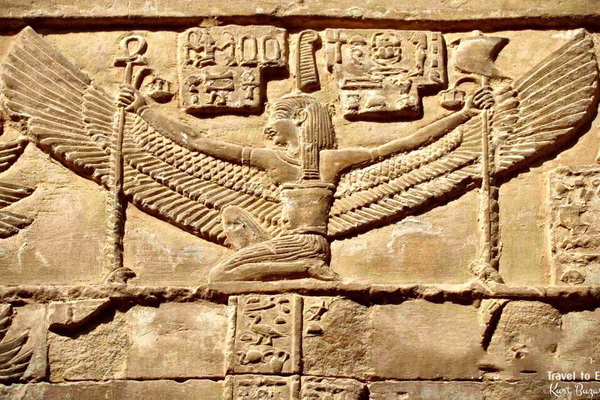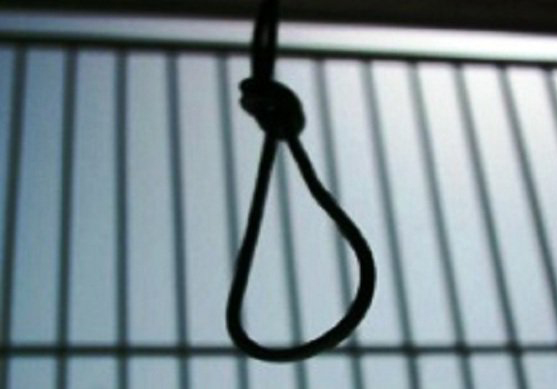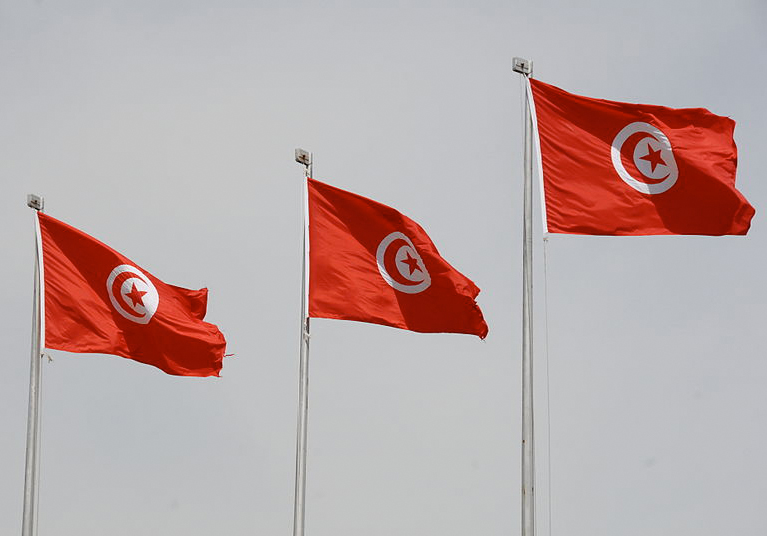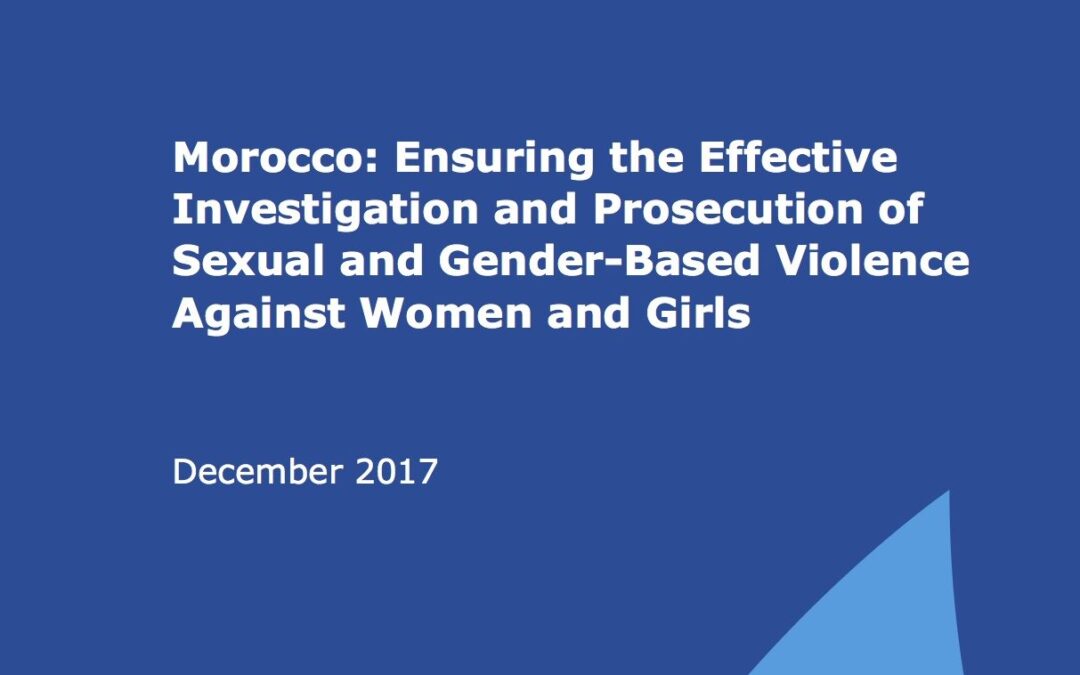
Jan 22, 2018 | News
The ICJ today called on the Egyptian Parliament to adopt a Draft Law on the appointment of women to the judiciary and to eliminate longstanding discrimination against their appointment as judges.
The Draft Law was introduced by member of the Parliament (MP) Nadia Henry this month and is supported by another 60 MPs.
The Speaker of Parliament has referred it to the legislative committee for review.
“Ensuring women’s full and equal participation in Egypt’s judiciary is necessary for a fair legal system reflective of the community it serves,” said Said Benarbia, ICJ MENA Director.
“It’s also necessary to end decades of discriminatory practices that have meant only a handful of women judges have ever been appointed despite explicit guarantees of equality in the Constitution,” he added.
Article 11 of the Constitution requires the State to ensure the “achievement of equality between women and men in all civil, political, economic, social and cultural rights,” including the right of “holding public and senior management offices in the state and their appointment in judicial bodies and authorities without discrimination”.
Women were first appointed to judicial office in 2007. Between 2007 and 2017 there were less than 67 female judges across Egypt, for a population of more than 100 million.
This significant under-representation of women is entrenched in a widespread discriminatory view, including within the judiciary itself, that working as a judge in court was an inappropriate profession for women.
“The Draft Law is significant first step towards challenging these discriminatory views and harmful practices. The Authorities must not only adopt it, they must also adopt other urgent, practical and structural measures to fully guarantee the rights of women to have equal access to judicial office and ensure their equal representation in the judiciary,” Benarbia added.
Background
The first article of the draft law places an obligation on all judicial bodies to appoint women to judicial offices and ensure that the conditions of their appointment are consistent with those that are applicable to men.
In its second article, the draft law nullifies any law that infringes on the obligation set forth in Article 1. Article 3 of the draft law invalidates any procedures in relation to the appointment of judges if such procedures do not comply with the Article 1 of the draft law.
Article 10 of the UN Basic Principles on the Independence of the Judiciary provide that, “In the selection of judges, there shall be no discrimination against a person on the grounds of race, colour, sex, religion, political or other opinion, national or social origin, property, birth or status…”.
The Convention for the Elimination of Discrimination against Women and the International Covenant on Civil and Political Rights, key human rights treaties to which Egypt has been party since the early 1980s, also explicitly prohibit discrimination against women, including in relation to access to public office such as judicial appointments.
Contact
Saïd Benarbia, Director of the ICJ Middle East and North Africa Programme, t: +41.22.979.3817, e: said.benarbia(a)icj.org
Egypt-women judges-news-2018-ARA

Jan 19, 2018 | News
The ICJ today condemned the executions of 22 civilians during the past month, following death penalty cases before military courts in which fair trial guarantees appear to have been flagrantly violated.
The Egyptian authorities should establish an immediate moratorium and halt all pending executions with a view towards the total and permanent abolition of the death penalty, the ICJ added.
“The executions of these civilians constitute blatant, egregious violations of the right to life by the Egyptian authorities,” said Said Benarbia, ICJ MENA Director.
“Carrying them out based on military trials, which furthermore failed to scrupulously observe international fair trial standards, amounts to the arbitrary deprivation of life,” he added.
Based on information provided by the defendants’ lawyers and families, Egyptian NGOs have reported a litany of fair trial violations that marred these proceedings.
These included the case of a defendant who was convicted following one trial session, in the absence of his counsel.
It also included instances involving enforced disappearances and allegations of torture and other ill-treatment, some of which were documented in the prosecution reports.
In one case the defendants’ lawyers filed a motion to “review the case” under article 448 of the Code Criminal Procedure which should normally suspend the carrying out of any sentence of execution.
The executions were nevertheless carried out on 9 January, before the Military Court’s review, which was due on 28 February 2018.
“The Egyptian authorities have brushed aside the most basic legal safeguards on the imposition and carrying out of the death penalty,” Benarbia said.
“Because they cannot ensure respect of fair trial rights, they must impose an immediate moratorium on executions.”
Under international standards, proceedings in death penalty cases must conform to the highest standards of judicial independence, competence and impartiality, and must strictly comply with all fair trial rights.
The ICJ has previously documented how the Egyptian judiciary fails to conform to these standards.
Contact
Saïd Benarbia, Director of the ICJ Middle East and North Africa Programme, t: +41.22.979.3817, e: said.benarbia(a)icj.org
Egypt-Executions-News-2018-ARA (Arabic translation in PDF)
Background
International standards recognize the particular concerns with judicial independence and impartiality that arise in relation to the trial of civilians by military courts.
Accordingly, the jurisdiction of military courts should be limited to military personnel in cases of strictly military offences, i.e. alleged breaches of military discipline.
The above-mentioned cases involved civilians and allegations of ordinary offenses, including theft, rape, and murder (including murder of military officers).
Particularly in these circumstances, there could be no justification for these cases to have been adjudicated before military courts and the ICJ considers that this factor in itself renders the executions in violation of the right to life.
The ICJ furthermore opposes the death penalty in all circumstances as a violation to the right to life and to the prohibition of cruel, inhuman or degrading treatment or punishment.
The cases in question were: Case No. 411/2013 before the Ismailiya Criminal Military Court (15 executions in 26 December 2017), case No. 22/2015 before Tanta Criminal Military Court (4 executions in 2 January 2018) and case No. 93/2011 before the Ismailiya Criminal Military Court (3 executions in 9 January 2018).

Jan 16, 2018 | News
Tunisian authorities must respect and protect the right to freedom of assembly and of expression of everyone in Tunisia, the ICJ said today.
They also must regulate the use of force against protestors according to international law standards, and ensure that those who are arbitrarily deprived of their liberty, including as a result of the legitimate and peaceful exercise of these rights, are immediately released, the ICJ added.
Over the past week, protesters took to the streets challenging the government’s recentausterity measures, including a rise in prices and tax increases.
Sporadic cases of violence, looting and vandalism occurred, including incidents that targeted police stations.
Over 800 people were subsequently arrested. Further, one protestor died on Monday 8 January 2018 in Tebourba, 30km west of Tunis.
“The acts of sporadic violence committed by a few people do not justify the scale or character of interference with the freedom of peaceful assembly of others,” said Said Benarbia, Director of the ICJ Middle East and North Africa Programme.
“The Tunisian authorities must immediately release those arrested for peacefully exercising their right to freedom of assembly, and provide due process guarantees to those allegedly responsible for punishable acts,” he added.
In policing public assemblies, Tunisian authorities should comply with their obligations under international human rights law, including not only the freedoms of expression, association and peaceful assembly, but also those relating to the rights to life, to be free from torture or other cruel, inhuman or degrading treatment or punishment, and the right to liberty and security of person (and to be free from arbitrary arrest or detention).
To that end, security forces should use force in accordance with the principles of necessity, proportionality, and precaution, and in a manner that respects and ensures people’s lives and safety.
The ICJ expresses its concern that violations of human rights of this kind would take place now despite the many reform efforts during the seven years since the revolution.
Contact
Said Benarbia, Director of the ICJ Middle East and North Africa Programme, tel: +41 798783546, e-mail: said.benarbia(a)icj.org
PR Recent Events in Tunisia ARA (Arabic version in PDF)

Dec 21, 2017 | News
The ICJ today called on the Moroccan authorities to effectively investigate and prosecute sexual and gender-based violence (SGBV) offences, including by ensuring the rights of victims to effective remedies and reparation and by combatting the impunity prevailing in Morocco over such offences.
The statement came following a high-level mission to Morocco from 18 to 21 December 2017 in which the ICJ launched its memorandum Morocco: ensuring the effective investigation and prosecution of sexual and gender-based violence against women and girls, and engaged with members of the government, the Parliament and the judiciary on the findings and recommendations of the memorandum.
Based on a review of 75 judgments handed down by Moroccan First Instance Tribunal and Courts of Appeal in cases involving SGBV offences, and on interviews with various actors in the justice system, the ICJ documented how the lack of guidelines on investigating and prosecuting SGBV, combined with the inadequacy of evidentiary rules and procedures, frustrate the successful prosecution of SGBV cases in Morocco.
Cases are often dismissed on grounds of insufficient evidence; and sentences, in those cases brought to trial, are often disproportionately lenient. This is partly due to the prevalence of judicial stereotyping, reduction of sentence when the defendant marries the victim (a practice that itself raises human rights concerns), and the arbitrary or unexplained application of mitigating circumstances such as the “social situation of the defendant” or “the relative seriousness of the acts that were committed”.
“Moroccan authorities should overhaul the framework and procedures on investigation and prosecution of SGBV,” said Saïd Benarbia, Director of the ICJ Middle East and North Africa Programme. “They should ensure effective and timely protective measures for the victims; provide for clear guidelines and protocols for law enforcement officers, prosecutors, doctors and other health professionals, and consolidate and supplement the victims’ testimony with additional evidence, in particular medico-legal and forensic evidence.”
“Those in charge of investigations and prosecutions must also minimize the burden on the victims with a view to avoiding their secondary victimization; refrain from stereotyping, victims’ blaming and other harmful practices that undermine the rights of the victims, and challenge, by way of appeal, disproportionately lenient sentences,” concluded Martine Comte, honorary judge and former President of the Court of Appeal of Orléans, France, who led the ICJ Mission.
Contact:
Saïd Benarbia, Director of the ICJ Middle East and North Africa Programme, t: +41.22.979.3817, e: said.benarbia(a)icj.org
Additional information
The mission was led by Martine Comte, honorary judge and former President of the Court of Appeal of Orléans, France, and included Saïd Benarbia, Director of the ICJ MENA programme, and Giulia Soldan, Programme Manager of the ICJ MENA programme.
The ICJ delegation met with Mr Mohamed Aujjar, Minister of Justice; Mr Adil El Bitar, President of the Commission on Justice, Legislation, and Human Rights at the Chamber of Deputies; Mr Mohamed Abdennabaoui, President of the Office of the Public Prosecutor and Prosecutor General of the Cassation Court; and representatives of civil society.
This Press Release is also available in Arabic (in PDF format), here: MOR Mission Dec PR ARABIC
The memorandum Morocco: ensuring the effective investigation and prosecution of sexual and gender-based violence against women and girls is available (PDF format):

Dec 8, 2017 | News
US President Donald Trump’s declaration recognizing Jerusalem as Israel’s capital and indicating an intention to move its embassy there, dangerously ignores long-standing international law, the ICJ said today.
Numerous United Nations Security Council’s Resolutions have reiterated the inadmissibility of the acquisition of territory by war, and have urged the withdrawal of Israel armed forces from territories occupied in the 1967 conflict, including East Jerusalem.
Trump’s announcement turns a blind eye on this legal reality and the related 50 years of occupation.
It also implicitly condones Israeli policies and practices that aim at altering the character and status of the Palestinian territory, including through the annexation of East Jerusalem, particularly by failing explicitly to similarly endorse Palestinian claims to East Jerusalem.
“Trump’s declaration cannot form the basis for any alteration of the status of Jerusalem under international law. However, it has the potential of provoking and fuelling a new cycle of violence in the region,” said Said Benarbia, ICJ MENA Director.
Thousands of Palestinians have taken to the streets to protest against Trump’s declaration. Dozens were injured in clashed with Israeli forces.
“The Israeli authorities should guarantee the right to peaceful protest and refrain from any disproportionate use of force against protesters, including the unlawful use of lethal force,” Benarbia added.
Background
The 2016 UN SC Resolution 2334 specifically reiterate that the Security Council “will not recognize any changes to the 4 June 1967 lines, including with regard to Jerusalem, other than those agreed by the parties through negotiations,” and that “the establishment by Israel of settlements in the Palestinian territory occupied since 1967, including East Jerusalem, has no legal validity and constitutes a flagrant violation under international law and a major obstacle to the achievement of the two-State solute on and a just, lasting and comprehensive peace.”
This reaffirms a series of similar resolutions by the Security Council since 1967.
Palestine-Trump Decla-News-2017-ARA (Statement in Arabic, PDF)









